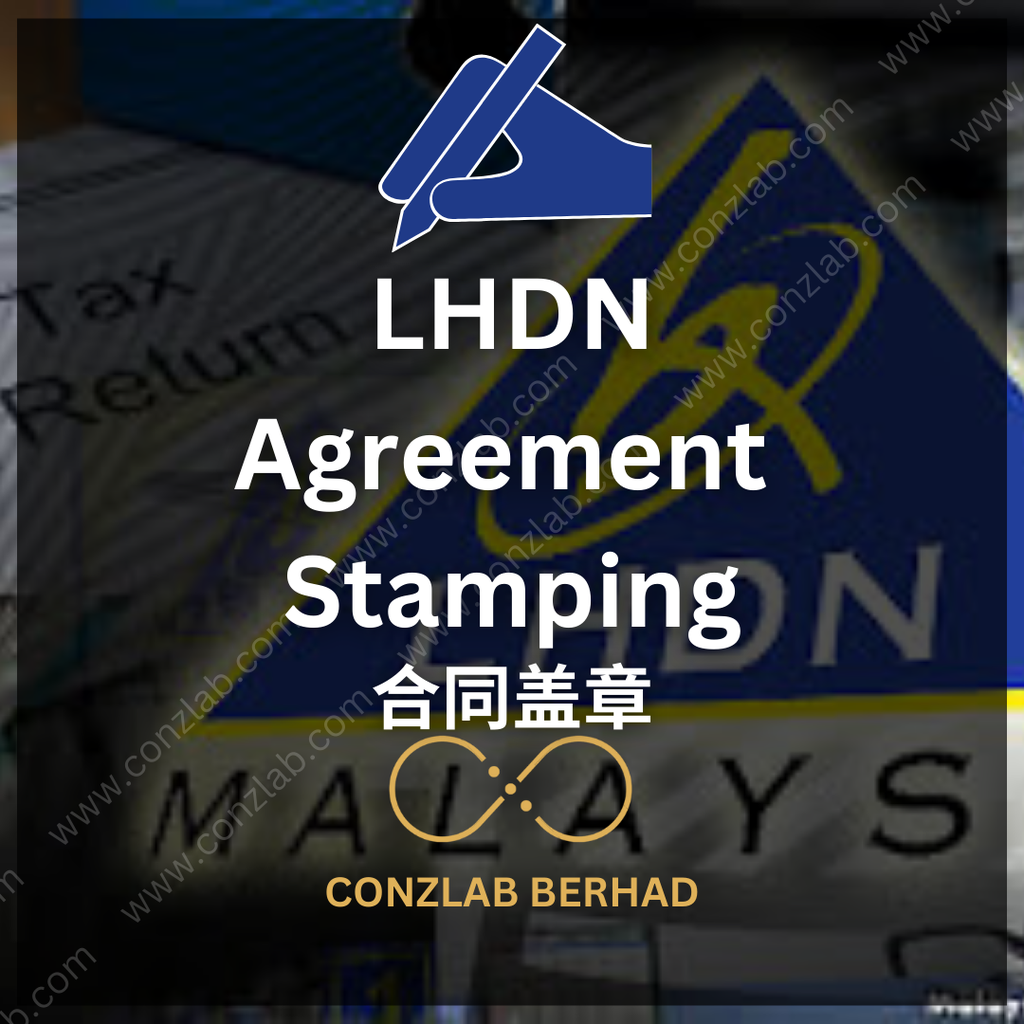Description
- LHDN Agreement Stamping refers to the process of paying stamp duty and officially stamping legal agreements or contracts to make them valid and enforceable under Malaysian law. This process is managed by the Inland Revenue Board of Malaysia (Lembaga Hasil Dalam Negeri Malaysia – LHDN).
GOV Department
- Lembaga Hasil Dalam Negeri Malaysia (LHDN)
License Name (Malay)
- Pemeteraian Perjanjian LHDN
Details
- Agreement stamping is required for legal documents such as tenancy agreements, sales and purchase agreements, loan agreements, and partnership contracts.
- The stamp duty amount depends on the type and value of the agreement.
- Agreements must be stamped within 30 days from the date of signing to avoid penalties.
- Stamping can be done at LHDN counters or through the STAMP Assessment and Payment System (STAMPS) online portal.
Important Rules
- All agreements involving financial value must be stamped as per the Stamp Act 1949.
- Late stamping will incur a penalty.
- Stamped agreements serve as legal proof in court during disputes.
- Both parties are responsible for ensuring the agreement is stamped before it takes effect.
Compound & Punishment
- Failure to stamp agreements can result in:
- Penalties: A fine of up to RM25 or 5% of the unpaid stamp duty (whichever is higher).
- For delays over 3 months, penalties can increase to 20% of the unpaid stamp duty.
- Unstamped agreements may be inadmissible as evidence in court.
Advisor

Penny Lim , Legal Consulting
Ms. Penny is responsible for identifying possible legal issues and implementing solutions in the areas of government regulation, customer protection, and fair employment. Legal Counsel. Ms. Penny can advise on legal issues such as government and business permits, review legal documents before signing them, and complete legal research as needed by the company
Commonly Asked Questions
LHDN Agreement Stamping is the process of paying stamp duty and officially validating legal documents through the Inland Revenue Board of Malaysia (Lembaga Hasil Dalam Negeri Malaysia – LHDN). This process ensures that the agreement is recognized as legally enforceable under Malaysian law.
Stamping provides legal recognition to an agreement and ensures compliance with the Stamp Act 1949. A stamped document serves as valid evidence in court and protects the rights of all parties involved in a transaction.
Common agreements that must be stamped include:
- Tenancy Agreements
- Sales and Purchase Agreements (SPA)
- Loan or Financing Agreements
- Partnership or Joint Venture Agreements
- Employment and Service Contracts
You must stamp your agreement within 30 days from the date of signing. Failure to do so will result in late penalty charges imposed by LHDN.
If stamping is delayed, LHDN may impose penalties based on the delay period:
- Up to RM25 or 5% of the unpaid stamp duty (whichever is higher)
- After 3 months, penalties can rise to 20% of the unpaid amount
No. Unstamped agreements are not admissible as evidence in Malaysian courts. Stamping is mandatory to make your agreement legally valid and enforceable in any dispute.
You can stamp your agreement in two ways:
- At LHDN counters — by submitting the physical document and payment.
-
Online via the STAMPS Portal (STAMP Assessment and Payment System) — an official LHDN platform for convenient electronic stamping.
Stamp duty is calculated based on the type and total value of the agreement. For example, tenancy agreements are charged according to the annual rental amount, while sales or loan agreements are based on transaction value or loan amount.
Responsibility for stamp duty depends on the agreement type, but generally:
- Tenants pay for tenancy agreements.
- Purchasers pay for sales and purchase agreements.
-
Borrowers pay for loan agreements.
It is important to clarify this in your contract before signing.
Yes. You can log in to the LHDN STAMPS portal to check your agreement’s stamping status, payment history, or download the digital stamping certificate for your records.
